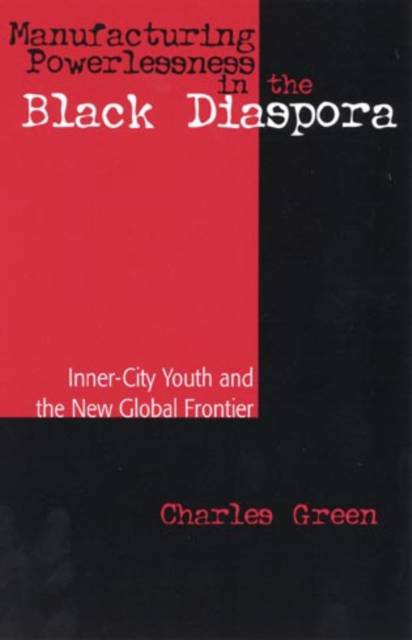
- Afhalen na 1 uur in een winkel met voorraad
- Gratis thuislevering in België vanaf € 30
- Ruim aanbod met 7 miljoen producten
- Afhalen na 1 uur in een winkel met voorraad
- Gratis thuislevering in België vanaf € 30
- Ruim aanbod met 7 miljoen producten
Zoeken
Manufacturing Powerlessness in the Black Diaspora
Inner-City Youth and the New Global Frontier
Charles Green
Hardcover | Engels
€ 86,95
+ 173 punten
Omschrijving
Despite the economic utopianism brought on by globalization, effective solutions to the persistent plight of urban blacks throughout the African diaspora continue to elude scholars, politicians, and community leaders. Charles Green brings a decade of research and original fieldwork in Africa, the Caribbean, and the United States to investigate the interface of the historic racism faced by these urban communities and contemporary trends of globalization. Green pays particular attention to the condition of the youth, whose aspirations, vulnerabilities, and insights into their own conditions are central to the future prospects for their communities as a whole. Considering the impacts of economic restructuring and cultural diffusion alike, his analysis asserts the importance of both global ties and local distinctiveness. Ultimately, Manufacturing Powerlessness aims to encourage the formation of alliances throughout the diaspora so that urban black communities can manufacture a future of empowerment. Visit the author's web page
Specificaties
Betrokkenen
- Auteur(s):
- Uitgeverij:
Inhoud
- Aantal bladzijden:
- 224
- Taal:
- Engels
Eigenschappen
- Productcode (EAN):
- 9780742502680
- Verschijningsdatum:
- 7/02/2001
- Uitvoering:
- Hardcover
- Formaat:
- Genaaid
- Afmetingen:
- 156 mm x 235 mm
- Gewicht:
- 467 g

Alleen bij Standaard Boekhandel
+ 173 punten op je klantenkaart van Standaard Boekhandel
Beoordelingen
We publiceren alleen reviews die voldoen aan de voorwaarden voor reviews. Bekijk onze voorwaarden voor reviews.











